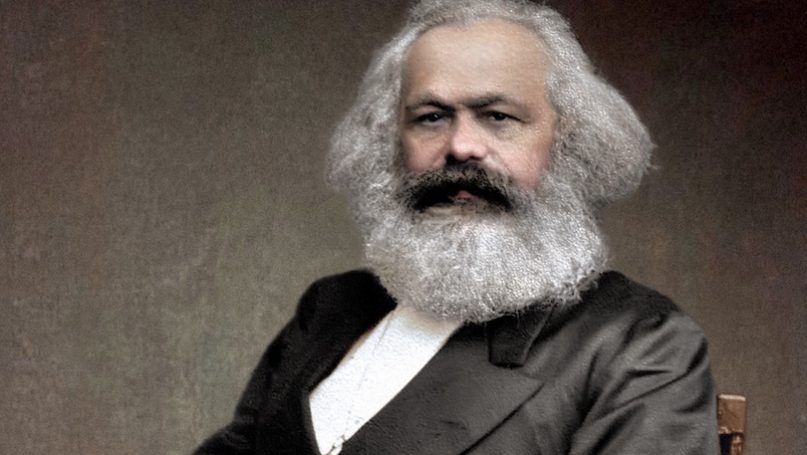
This feature is part of the online resources to accompany the textbook Foundations of International Relations.
Marxism is a disparate theoretical family held together by one key point: the global system should be replaced. Therefore, Marxism is unabashedly a revolutionary theory. The theory is based upon the ideas of Karl Marx and consequently is the only theory of International Relations that is named after a person. As Marx himself famously stated, philosophical writings typically only interpret the world rather than outline how to change it. Answering that call, Marxists today – and the wide range of critical theoretical families they inspire – are interested in understanding all the historical elements of today’s global system. Taking that knowledge, which spans economic, political and social critique, they focus on how our global system empowers some groups (mainly the elite, or ‘the 1 per cent’) and simultaneously disempowers others (the everyday person, or ‘the 99 per cent’). For this to change, the legitimacy of the state must be questioned and then it must be ultimately dissolved. In that sense, emancipation from the state in some form is the essence of the system change Marxists seek. Marxists believe that we are not born free – instead we need to be freed via the proliferation of revolutionary thinking that raises awareness of the injustices of the global system.
Karl Marx (1818–83) was a German intellectual who lived during the height of the industrial revolution in Europe. Based on his writings, the term ‘Marxist’ refers to individuals who believe that society is divided into two classes – the capitalist class of ‘owners’ (the bourgeoisie) and the working class (the proletariat). The proletariat are at the mercy of the bourgeoisie, who control their wages and therefore their standard of living. Marx hoped for an end to the class society and an overthrow of the bourgeoisie by the proletariat – whom he sought to inspire towards a communist revolution. Communism is a form of ordering society with (in principle) no private ownership, no rivalling political parties, and no hierarchies – such as class. Instead, an all-powerful state would ensure that all citizens would share more equal outcomes than they would in a capitalist society.
Inspired by Marx’s ideas, many states worked towards adopting communism – most notably the Soviet Union, where the world’s first successful communist revolution began in 1917. But, in the Soviet Union (and elsewhere) the system failed to work economically and succumbed to systematic political corruption (see Courtois et al. 1997 and the 2019 Chernobyl television miniseries). As a result, there are only a handful of communist countries left today. Those that do remain, such as China and Vietnam, are communist in name only and use a hybrid form of government that allows for capitalism and private ownership while holding on to communism’s authoritarian political elements such as a one-party political system and tight controls over the flow of information. Such restrictive features of communist systems led to the mirror-image description of Western states in the Cold War as the ‘free world’ due to widespread features in the ‘First World’ such as multi-party electoral systems and a free press. Marxist theorists today argue that, contrary to the image of capitalism (which is now global) as a free world, the dominance of the nation-state in the post-Cold War system has led to ordinary people around the globe becoming divided and alienated, instead of recognising what they all have in common as a global proletariat.
Text adapted from McGlinchey, Stephen (2022) Foundations of International Relations. London: Bloomsbury.
For much more on Marxism and other theories, you can download the free textbook, International Relations Theory.
Below is a collection of freely accessible multimedia and textual resources that help unpack, and explain the importance of Marxism to International Relations.
Getting started with Marxism
Engaging with Marxism
Introducing Marxism in International Relations Theory – article
Introducing Critical Theory in International Relations – article
Theory Talk with Immanuel Wallerstein – article
Theory Talk with Kees van der Pijl – article
Theory Talk with David Harvey – article
The Marxists internet archive – website
Immanuel Wallerstein’s webpage – website
Yanis Varoufakis: ‘How I became an erratic Marxist’ – article
‘Marxism and anarchism’ by Paul Blackledge – article
Internet Encyclopedia of Philosophy on the Frankfurt School – website
Theory Talk with Robert Cox – article
Matt Davies: ‘Problem-Solving Theory Versus Critical Theory?’ – article
Marxism in IR, with Maïa Pal – podcast